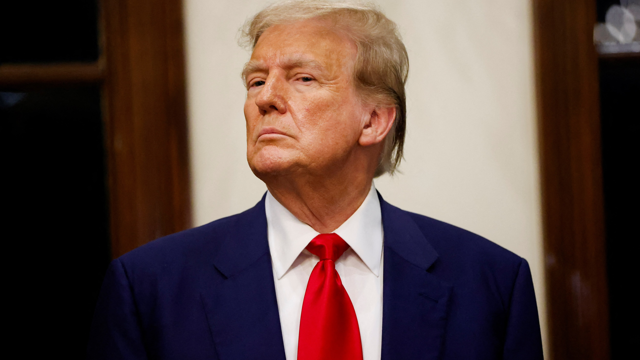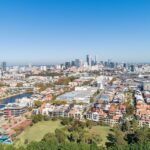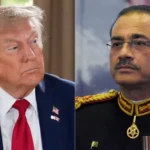Far away from US President Donald Trump’s public confrontations with elite universities like Harvard and Columbia, students at the bustling University of California at Santa Barbara (UCSB) are finishing up their final exams under the sunny skies shining above the nearby beach.
Despite the distance and pleasant weather, students here still feel the cloud of uncertainty hanging over them, created by Trump’s rhetoric and policies towards foreign students.
“The overall mood across the room [among international students] is that people are looking for other options,” said Denis Lomov, a 26-year-old PhD student from Russia who has been at UCSB since 2022 studying climate change politics and energy transitions.
Since coming into office this year, the Trump administration has revoked the student visas of hundreds of foreign nationals, slashed funding for science and research programmes, arrested and tried to deport foreign nationals involved in pro-Palestine campus activism, and suspended student visa appointments.
For international students at universities like UCSB, where nearly 15 percent of all students are from outside the US, the rhetoric and policies have left students wondering about their futures in the country.
“It makes you wonder if maybe you’d rather go somewhere else,” Lomov told Al Jazeera, adding that he is still several years away from completing his PhD.
Like his fellow international students, he said he has started to consider whether his skills might be more valued in places like Canada or Europe after he finishes his programme.
Lack of certainty
The Trump administration’s actions against universities and foreign students have met mixed results in the courts.
On Monday, in one of the Trump administration’s first significant legal victories in those efforts, a federal judge dismissed a lawsuit from Columbia University over the government’s cuts to the university’s federal funding, based on allegations that the university had not taken adequate steps to curb pro-Palestine activism in the name of combatting anti-Semitism on campus.
In another ruling, also on Monday, a judge extended a restraining order pausing Trump’s efforts to block incoming international students from attending Harvard as the case makes its way through the legal system. Trump has also threatened to revoke Harvard’s tax-exempt status and has frozen more than $2.6bn in research grants. Harvard has also filed a lawsuit challenging those cuts.
Several universities in the UC system, including UCSB, have warned international students against travelling outside of the country, a restriction that poses serious complications for their academic work and their personal lives.
“People are considering whether they’ll be able to go home and visit their families during their programme,” said Anam Mehta, a US national and PhD student at UCSB.
“They’re being extra cautious about what they post online out of concern about being questioned at the airport,” added Mehta, who is also involved with the UAW 4811 academic workers union.
These concerns, he said, could also stymie the ability of international students to conduct field work in foreign countries, a common feature of graduate research, or attend academic conferences abroad.
Some students — and even university administrators themselves — have noted that it is difficult to keep up with the raft of policy announcements, media reports, lawsuits, and counter-lawsuits that have unfolded as Trump presses his attacks on higher education.
“There have been frequent changes and a lot of these policies have been implemented very quickly and without a lot of advanced notice,” Carola Smith, an administrator at Santa Barbara City College (SBCC), said, noting that prospective international students have reached out with questions about whether they are still able to study in the US.










